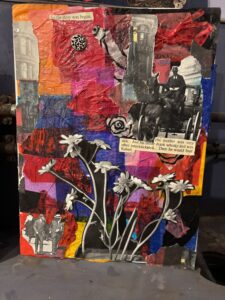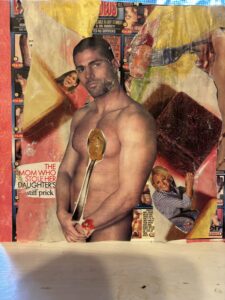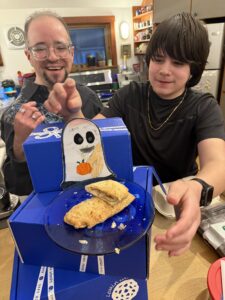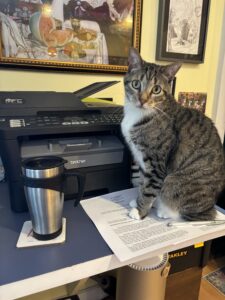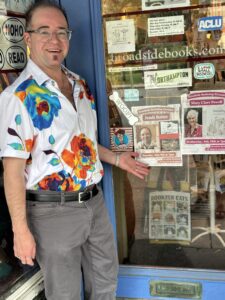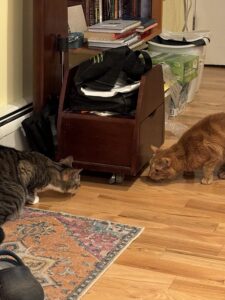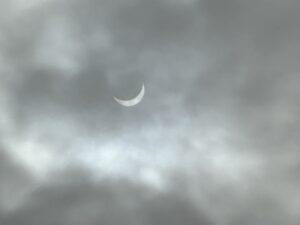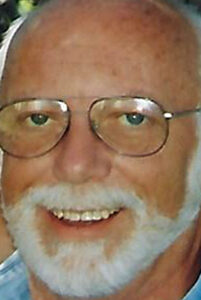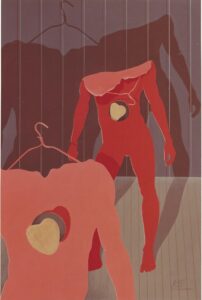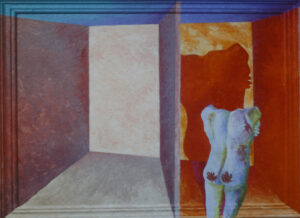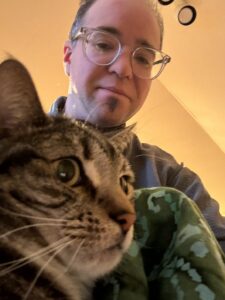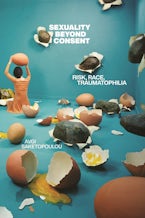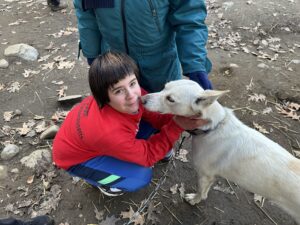My estranged mother, Irene, died shortly after midnight on New Year’s Eve/Day. She was 84 years old. I last had contact with her in January 2011. My husband, our son, and my mom-of-choice Roberta (her ex) attended her graveside funeral in New Jersey yesterday, along with her late brother’s widow and a good contingent of cousins from her side of the family.
The Orthodox rabbi hired by the funeral home was very kind and diplomatic about the rather unorthodox eulogy I wrote, which is reprinted below. He didn’t know any of us, but he made an educated guess that my mother, for all her narcissism, was someone who wanted to give to others. When she retired early from teaching elementary school after a nervous breakdown, she lost a creative outlet she might not have realized she needed. He suggested that we do mitzvahs (good deeds) to ease the repose of her soul. If you feel so inclined, give some tzedekah (charity) to a dance program that you value; Jacob’s Pillow was a family favorite.
Though quite a beauty before stress ravaged her health, Irene was never satisfied with photos of herself. So instead, here are some characters she resembled in looks, mannerisms, and/or personality.



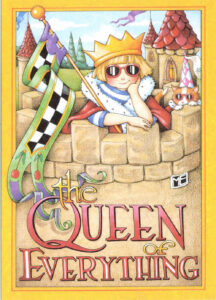
(L-R: Queen Elizabeth I; Glenn Close in “101 Dalmatians”; Gloria Swanson as Norma Desmond; a favorite Mary Engelbreit Design)
Eulogy for Irene
My mother Irene was a lot like Norma Desmond from Sunset Boulevard. Charismatic, disappointed, desperate for love but unable to be satisfied by it. She was too big for the picture of her life. She was an abused child in the body of a femme fatale.
My mother was a lot like Queen Elizabeth I, the historical figure she most admired. Both had rage-filled fathers and early betrayals that taught them to carve out their own path without depending on men. “Queen Irene” was fashionable, intelligent, and a rule-breaker. When she willed something, it happened…but at a high price. Addicted to control, she couldn’t let the mask of command slip for long enough to maintain honest intimacy.
My mother was a lot like a hungry ghost, a Buddhist metaphor for a spirit who seeks what cannot fill her up, looking for something outside herself that was hidden within her all along. Today we hope that the best part of her is set free from the patterns of a personal history that led her to starve herself and others.
Irene was a lightning storm of contradictions. I remember her leading us in joyful improvised flamenco dances after watching a performance at Jacob’s Pillow, in one of the Berkshires cottages we rented during my childhood. And I remember her breaking a picture frame over her partner Roberta’s head in that same cottage, one of hundreds of incidents of violence I had to witness or mediate over their 34-year relationship.
I remember her encouraging me to be a maverick artist, to devote my life to writing even when we had very little money, so that I wouldn’t live with regrets the way she did. Misogyny and family pressure pushed her into the more “respectable” profession of elementary school teacher when she really wanted to be an actress or a ballerina. She channeled that artistic passion into filling my childhood with books, museum visits, and season tickets to Lincoln Center and Tanglewood. (Sadly she was also a pop music snob who made me return my Cyndi Lauper cassette to Tower Records. Assigned-female-at-birth people just wanna have fun, Mom!)
And I remember her trying to sabotage my wedding and telling the adoption social workers that I would be an unfit parent, so that no other relationship would compete with her for my devotion. She wanted me to be the girliest little girl but not to grow up to be a woman. Well…I guess she got that part right.
Irene would have described herself as a child of the Sixties, with all of that generation’s iconoclasm and self-focus. Spiritual but not religious, she took deep interest in Native American cultures, Jewish folklore, and New Age self-help. She raised me to take it for granted that no opportunities would be foreclosed to me because of gender, yet she struggled to apply feminist ideals to herself and other people when her personal shame around social class and body image was triggered. Her longest relationship by far was with her lesbian partner, but she would never have identified as queer. I think she just liked being in a class by herself.
When she retired from teaching, her world became much smaller and unhealthier, caged by her OCD compulsions. She wasn’t able to learn how to transmute her intergenerational trauma into creative energy, so she offloaded that unbearable anger and anxiety onto the people closest to her.
Roberta and I literally had to save our own lives by ceasing direct contact with her in 2011, after ensuring that she had good nursing care in her apartment and then in her assisted living facility. We’re grateful to our late friends Anne and Sid Emerman, my late Uncle Phil, and my Aunt Susan for buffering us by handling Irene’s medical and legal affairs.
I learned from my mother to speak my mind, question authority, believe in magic, buy the best chocolate, and never run up credit card debt.
May she have a peaceful rest and a fortunate rebirth.


